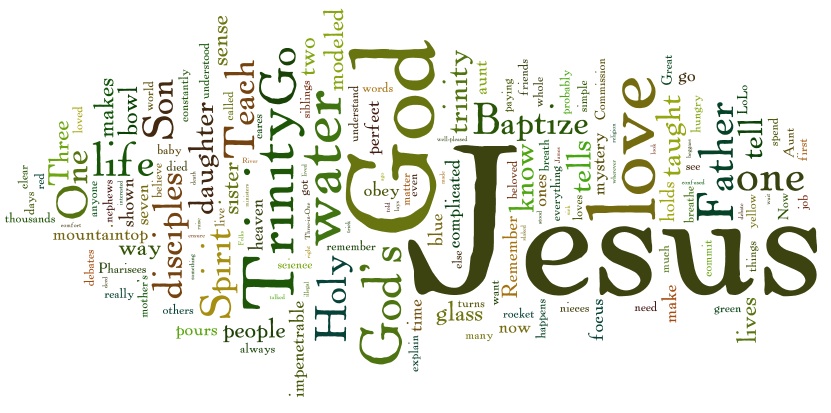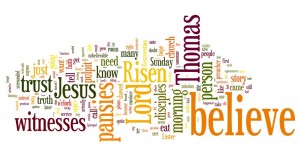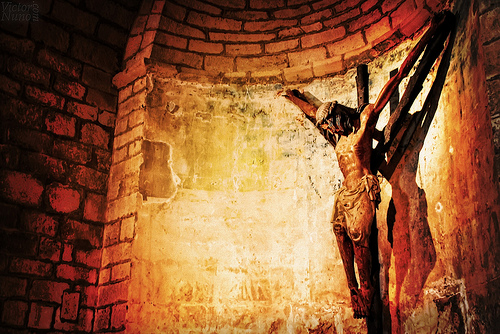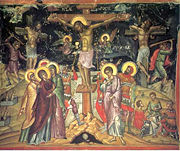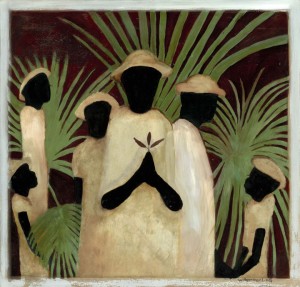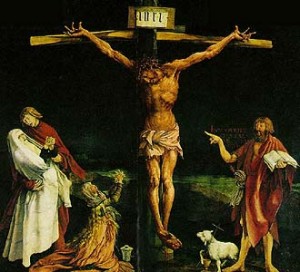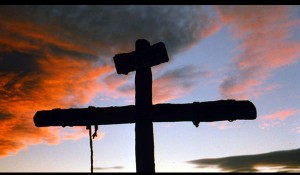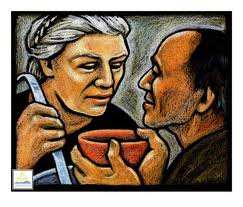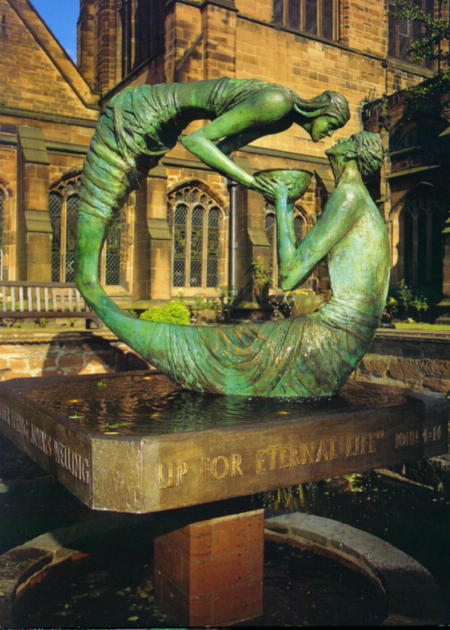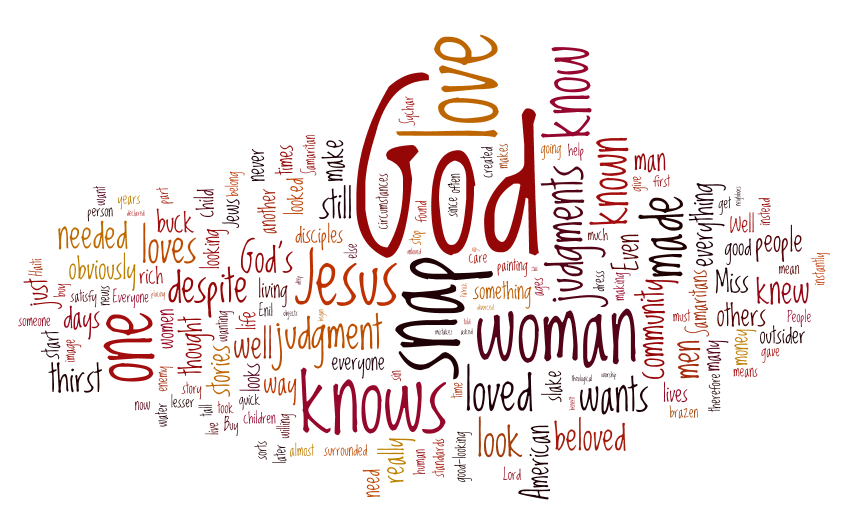Philippians 1:21-30
The House of Bishops of The Episcopal Church is meeting in Quito, Ecuador, this week. One hundred and sixteen bishops from the 109 dioceses spread out over 16 nations have gathered to pray, to learn … and to think …
One thing they were asked to think about came from Don Compier, a liberation theologian who recounted to the bishops a recent conversation he had had.
Compier told them that “he was recently asked by someone in another denomination: ‘If you care about the poor, why are you an Episcopalian? Aren’t you just interested in liturgy?’ Compier reminded the bishops that “our tradition of witness to the concerns for the poor is not well known, even by us.”[1]
What Compier was asking the bishops to think about was, in essence, the same thing St. Paul asks, in a variety of ways, throughout his letters: How then shall we live?
Shall we live as people who are in love with liturgy?
Or shall we live our lives in a manner worthy of the Gospel, as Paul exhorts us this morning?
And what, pray tell, does that even mean, to live our lives in a manner worthy of the Gospel?
For Paul (and implicitly, for the person who asked Compier that question), Gospel-worthy lives begin and end in community.
Gospel-worthy lives are never about us … They are never about getting ahead or getting more, never about adopting the attitude of “I’ve-got-mine-and-I-don’t-care-if-you-get-yours,” never about leaving others behind.
Gospel-worthy lives are about love.
Gospel-worthy lives are love.
Paul makes this clear in what is known as his “love letter to his friends in the church at Philippi.”[2] Everything he writes them is about how we are to live in love and in community because this is what God desires for us.
As Walter Brueggemann, one of the most respected theologians of our times, preached not long ago:
Paul says to his beloved church, imagine your life caught up in the great divine drama in order that you may not imagine your life as a tale told by an idiot signifying nothing, in order that you may not imagine your life as an endless rat race that no one can win, in order that you will not imagine your life as an endless series of accidents that amount to very little. Christians (he says) are people who imagine and receive their lives differently, bracketed and ordered by God’s goodness and God’s resolve for us.[3]
Our lives will have meaning, our lives will fulfill God’s desires for us, if we bracket and order our lives in God’s goodness, in God’s resolve, if we live focused not on ourselves but on God’s beloved community.
That’s what Paul is talking about when he says “living is Christ,” that living is “fruitful labor” for him, that it is “more necessary for you.”
Paul is talking about community, which can only be lived in love.
Even the word Paul uses to instruct his beloved friends in Philippi underscores this. The Greek word for “live your life” is politeusthe – which comes from the Greek word for “city” – polis – which according to one commentator “has the sense of ‘live as a free citizen,’ [or] ‘conduct your public life.’”[4]
So Paul is crystal clear that our lives are never to be about “me-me-me, mine-mine-mine.” Not only are they are always to be focused on others, but, Paul insists, we are to bring our focus as a community.
Because we are the Body of Christ, Paul teaches, we are to act as the Body of Christ.
If all of us were to focus our lives and our love together, there wouldn’t be 52 million Americans living in poverty right now. There wouldn’t be 48 million Americans living right now without health insurance.
If we focused our lives and love together, there wouldn’t be 14 million unemployed people in our own country, there wouldn’t be millions of our children going to school hungry every morning, there wouldn’t be a wealth disparity in this country and in this world that more closely models medieval times than modern times.
If we brought our Gospel-worthy lives to bear on the problems of the world, do you really think there would be 650,000 Somalis about to starve to death in the Horn of Africa right now, because no one will give them food?
Would there really be children who die of easily cured diseases – diseases we can cure for less than one dollar per child – because no one will give them medicine?
If we lived Gospel-worthy lives – and we can easily choose to do so – each person, each beloved child of God in this world – would have enough – not too much, not an over-abundance of things, but enough – enough food and water, enough shelter, enough education, enough money to not just survive but thrive.
Paul “is speaking (to us) about how a community whose common life is founded and sustained by the crucified and risen Christ should live together.” [5] And, he’s telling us, this is our choice to make.
Now, I need to warn you:
Being Gospel-worthy – living Gospel-worthy lives – is dangerous. It gets us in trouble. It upsets the status quo. And sometimes, when we focus our lives in this way … sometimes … we end up in jail … like Paul. Sometimes, we end up dying … like Jesus and Paul.
You don’t think Paul was hauled off to prison – which is where he was when he wrote this love letter to the Philippians – just because he didn’t pay his taxes, do you?
As Paul himself would say, Me genito! By no means!
Paul ended up in jail – Paul ended up being executed – because he upset the Roman apple cart!
Because he kept getting in the face of those in power, he kept threatening those in power, with the Gospel … with Jesus’ instructions to care for those in need, to feed the hungry, to cure the sick and touch the leper and eat with the tax collectors and worship with the prostitutes and the destitute … to give hope to the hopeless and power to the powerless, to include the excluded, to love the unloved.
And that’s just not where the world – or, I should say, where the powers-that-be in the world – want us to go.
The powers-that-be in no way want us to stand up and say, No more. Nada mas. Bas. Basta.
In no way do the powers-that-be want us – members of the Body of Christ – to upset their apply carts.
But we are the Body of Christ, commanded by none other than Christ, to love God and love our neighbor – to live in love and community every moment of our lives, to make choices – every moment of our lives – that are for the common good, not for our own good only.
• • •
This past summer, I was at Camp McDowell, the Diocese of Alabama’s camp and retreat center, helping to lead a week-long summer camp program for 125 seventh- and eight-graders. Our program was focused on how to live together as the Body of Christ.
We called it, OMG, Y’all! (That stands for … wait for it … wait for it …) On a Mission From God, Y’all. (Not what you thought, eh?)
One part of the camp program was a game called “Survival,” in which we asked each small group of about 10 campers to become a “nation,” to which we then gave red and green beads.
Each red bead, we told the campers, represented 1,000 people.
Each green bead, we said, represented enough food for 1,000 people.
No group – no nation – started off with an equal amount of beads.
Some nations had lots of red beads – lots of people – and very few green beads – very little food.
Other nations had enough food to feed their people several times over.
The goal of the game, we said, was for each nation to end up with an equal number of red and green beads – with enough food to care for all their people.
Now, what normally happens in this game is that the nations swap food and people with each other – all the while dealing with disasters or blessings, with locusts or emigration, with tornadoes or gentle rainfall, with drought or bumper crops, with whatever disaster or blessing we decided to drop on them, whenever we decided to do so. What normally happens is that at the end, each nation has enough food to feed its people, but some nations are huge, and others are small.
That’s what normally happens.
Not at Camp McDowell, of course.
There, the kids decided first that they would take care of each other. One group, every time it found itself with a surplus of food, started going to other groups and simply giving their extra food away for free, asking nothing in return. Others entered covenants: You take care of us, we’ll take care of you. Still others formed coalitions, sharing food and people equally.
And then, in the end, in a completely unexpected turn of events (which I have never seen before), the groups decided they no longer wanted to experience famine or overcrowding. So they joined together.
All 12 groups.
Into one nation.
That way, they reasoned, everyone would have enough to eat. No one would go hungry ever again.
May I remind you that these children were in seventh and eighth grade? That they ranged in age from 11 to 14?
These children understood what it means to live Gospel-worthy lives.
And then they lived them.
Let me tell you: Those children in Alabama? They knew how to answer Paul’s great question of “How then shall we live?” Yes, it was just a game in a week filled with games. But they still did it. For them, it was a no-brainer! (Actually, I believe what they said to me was, “Duh!”)
And if those children can do it, can’t we as well? If they can see this solution as a “Duh!” can’t we do the same? After all, we are the adults here!
The children already know this, and they teach us about our call in life. Their answer Paul’s question:
We are called … as members of the Body of Christ … to live Gospel-worthy lives.
We are called to be Gospel-worthy.
Gospel-worthy.
Amen.
Sermon preached on the 14th Sunday after Pentecost, Proper 20, Year A, 18 September 2011, at the Episcopal Church of the Good Shepherd, Blue Grass, Va.
[1] Quoted in “Theology of Liberation” on the blog of The Rt. Rev. Michael Hanley, Bishop of Oregon, http://www.bishop.episcopaldioceseoregon.org/, 15 September 2011. Compier is a professor at St. Paul School of Theology in Kansas City, Mo.
[2] Walter Brueggemann, Columbia Theological Seminary, “A Love Letter…concerning a Work in Progress,” First Presbyterian Church, Birmingham, Mich., 6 December 2009, http://www.fpcbirmingham.org/worship/sermons/a-love-letter/, emphasis added.
[3] Ibid.
[4] Susan Eastman, Assistant Professor of the Practice of the Bible and Christian Formation,
Duke Divinity School, Durham, N.C., “Reciprocating Glory,” http://www.workingpreacher.org/preaching.aspx.
[5] Stephen E. Fowl. Philippians (Two Horizons New Testament Commentary), 79, Kindle Edition.








